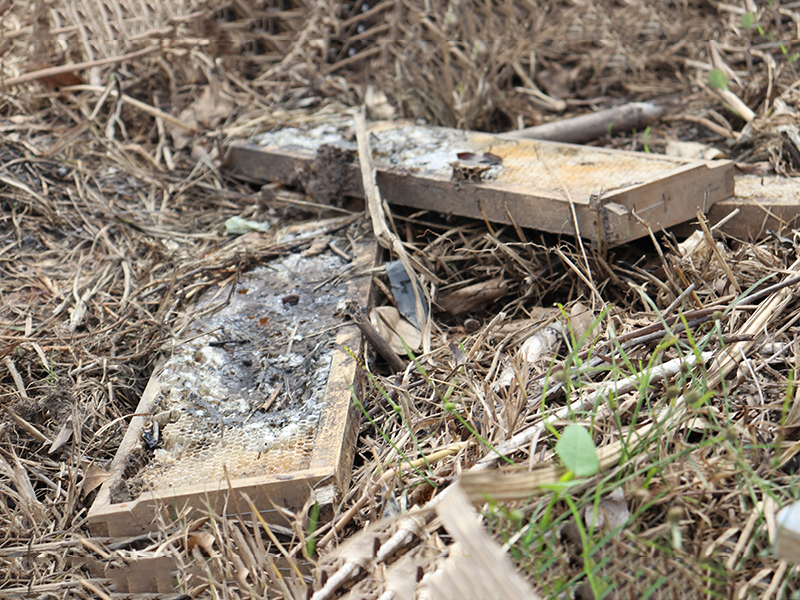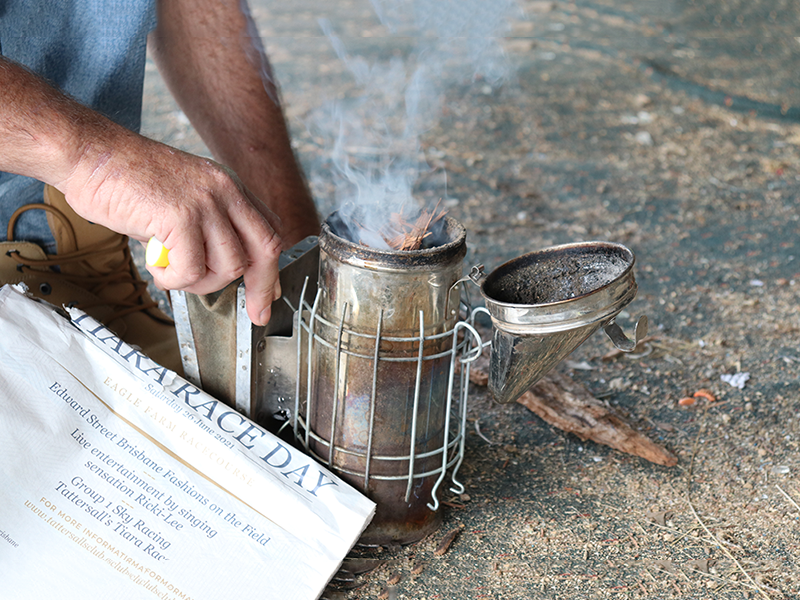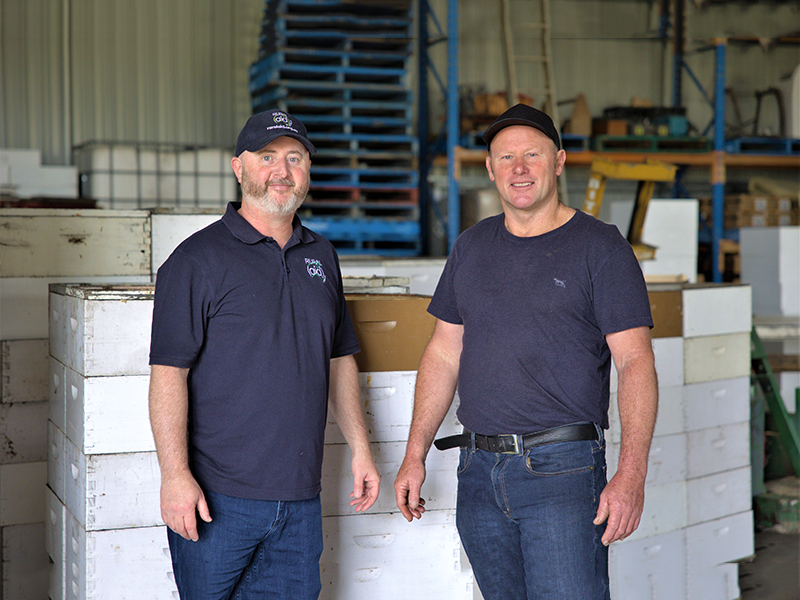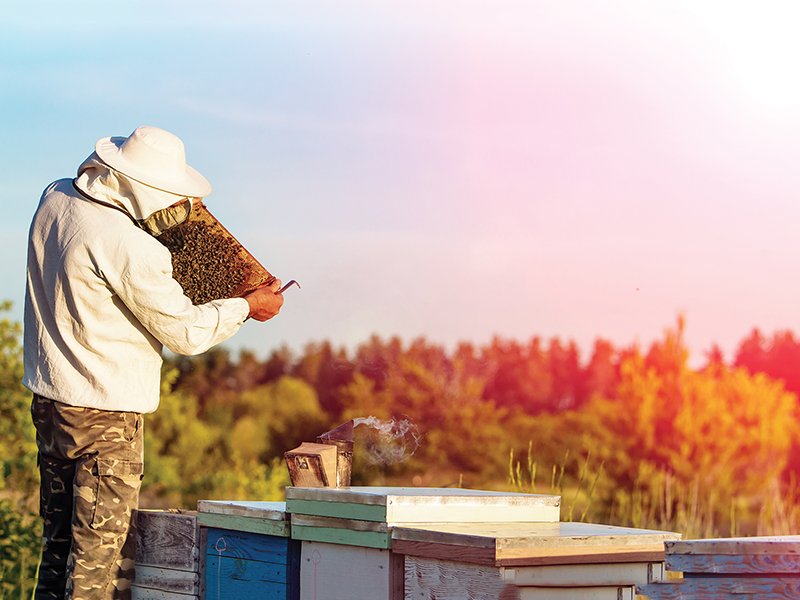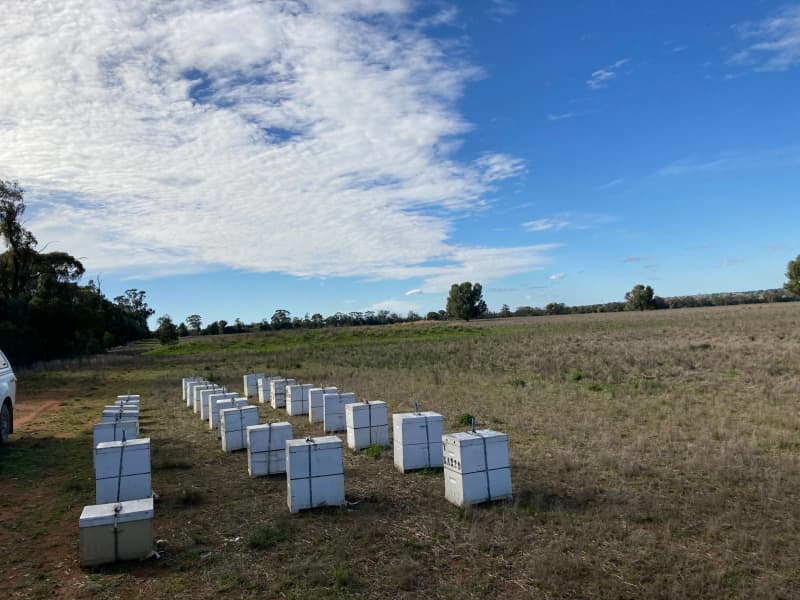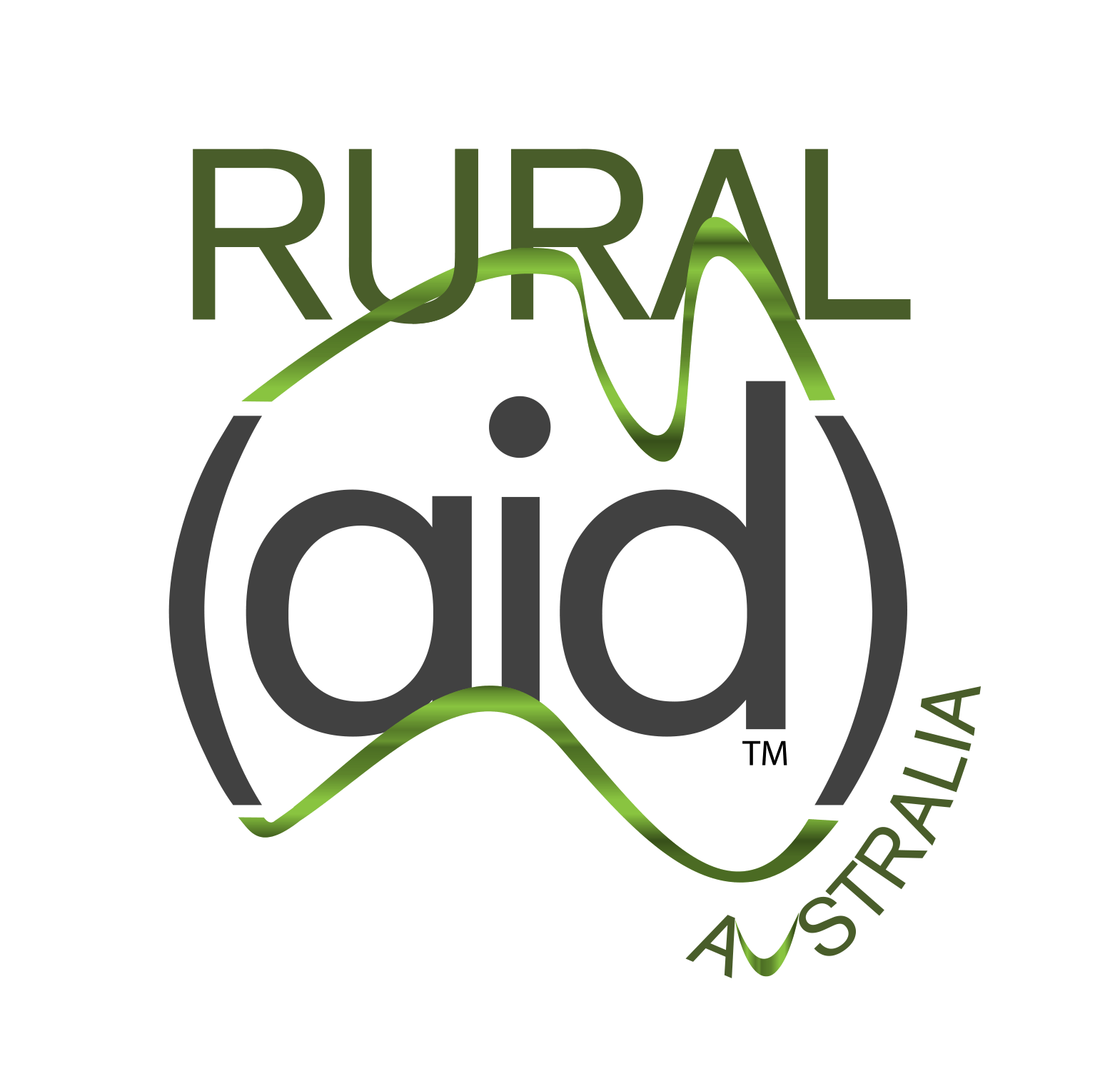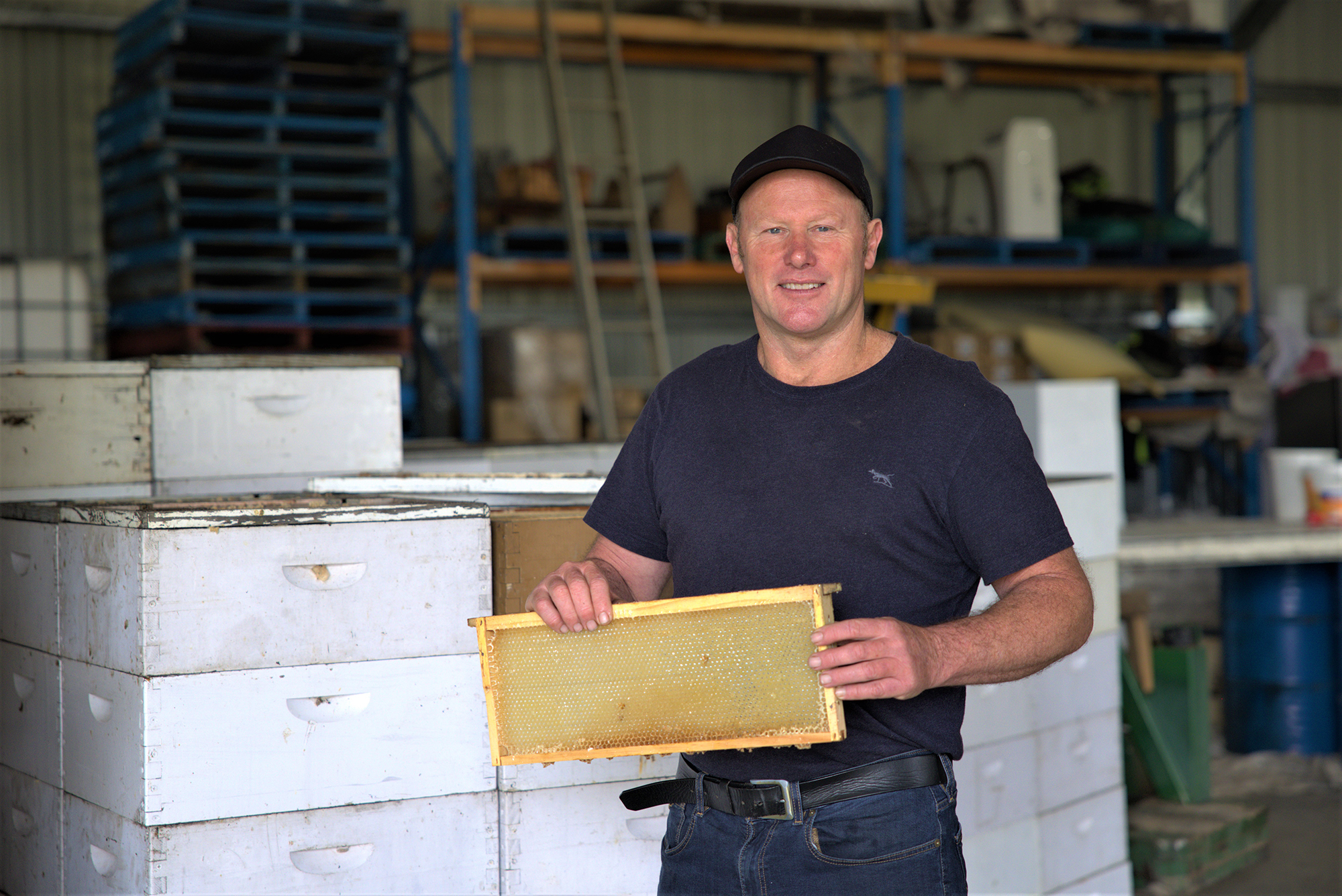
A declining global honeybee population isn’t new headline fodder. A ubiquitous and credible threat has been identified in recent years in the form of the varroa mite, or varroa destructor as it is more ominously known.
Only able to reproduce within honeybee colonies, the parasite attaches to a bee’s body, feeding on its fat stores and affecting its host’s ability to fly, feed, produce honey, and ultimately, to sustain life.
Thanks to its robust biosecurity laws, Australia is the only major honey-producing nation to hold the varroa mite at bay—until now. Since the mite was detected in the port of Newcastle back in June 2022, a major outbreak has been swiftly and devastatingly unfolding and Australia’s commercial beekeeping, honey, and pollination industry (worth an estimated $264M annually*) teeters on the brink of devastation. Honeybees are not only essential to supporting this major driver of Australia’s GDP, they are vital to the pollination and growth of around 70% of Australia’s fresh produce*, and intrinsic to the continuation of human and animal life.
Since June, Australian Beekeepers have been exterminating honeybees in droves, with approximately 18 million destroyed so far.
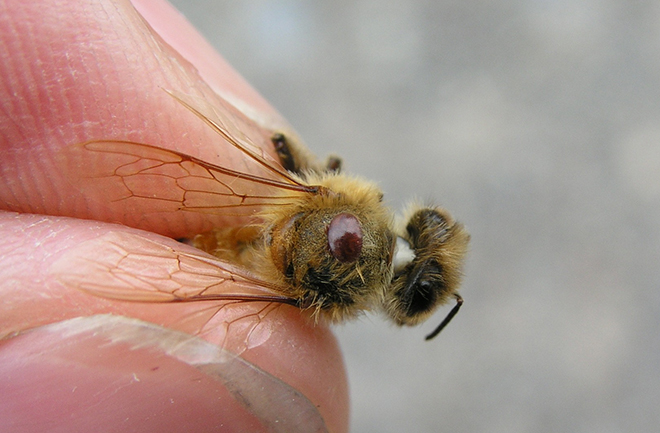
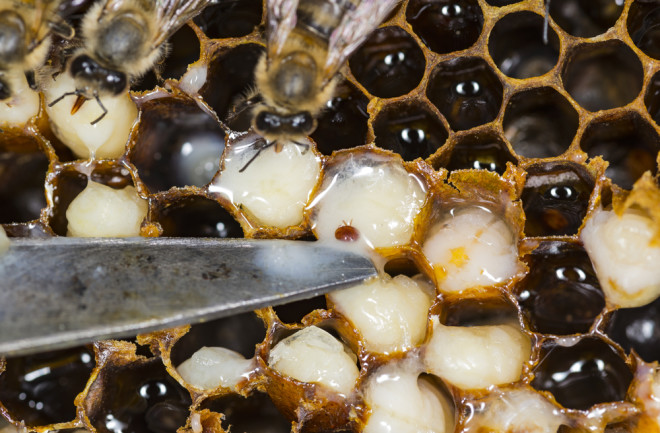
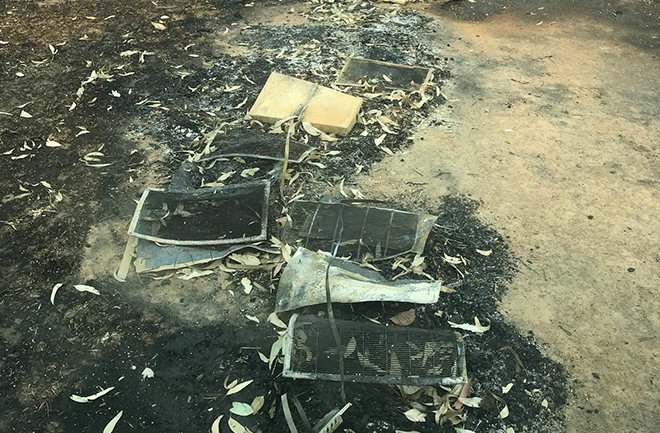
Like many of the harsh realities of bush life, the loss of animals, crops, resources and equipment to outbreaks such as that of varroa mite – or natural disasters like bushfires and floods – can have a severe and long-lasting impact on the recovery efforts and outlook for farmers. In response to this, Rural Aid re-launched it’s HiveAid initiative – a dedicated extension of its financial assistance service – to specifically support affected primary producing beekeepers. HiveAid was created during the Black Summer bushfires in partnership with Australian Honey Bee Industry Council and Hive + Wellness, the nation’s largest honey packer.
Eligible farmers like Rob Porteous were able to access financial support in the form of a $500 prepaid Visa card. Rob lost around 100 hives earlier this year and was in urgent need of financial assistance to keep his property and business afloat.
“When we first found out [about varroa mite], it just bought the industry to a halt… my initial reaction was devastation,” Rob said.
“The financial impact on my business has cost around $30,000… Because I can’t move the bees, I can’t make an income out of them.”
Rob thanked Rural Aid for providing a little bit of hope in a confusing and upsetting time.
“It kind of feels like someone has your back and people do care. The money that Rural Aid has given me has helped me out a lot. So thank you very much,” Rob said.
In addition to providing financial assistance via Hive Aid, Rural Aid’s Mates Day on 23 November is hoping to raise more funds to support farmers and rural communities, in preparation for the next unexpected challenge.
“Our beekeepers are the cornerstone of Australia’s agricultural industry, playing a vital role in pollinating food crops for both humans and livestock, and producing world-class honey. It’s imperative we help them in this ongoing fight against the varroa mite,” said John Warlters of Rural Aid.
